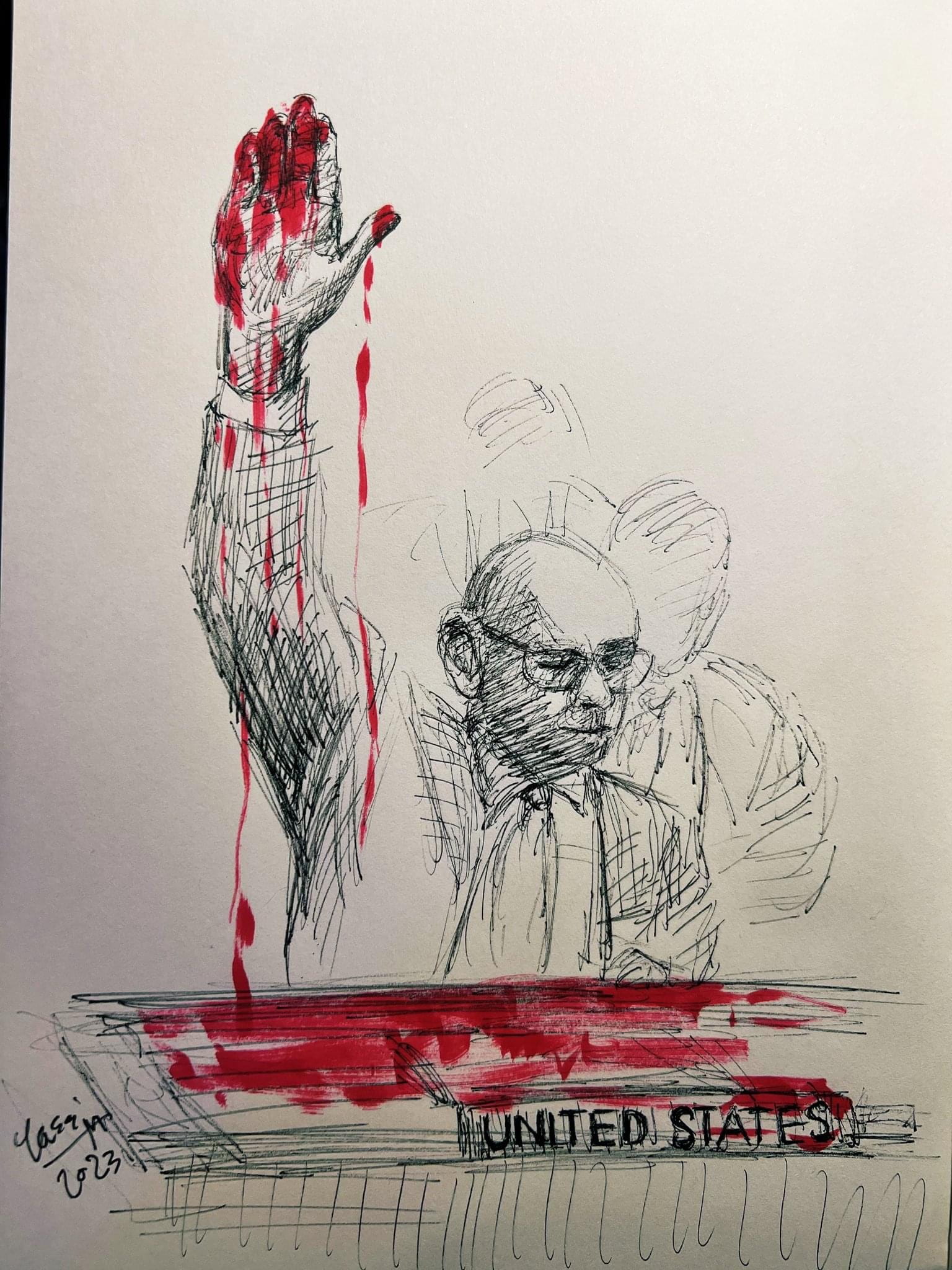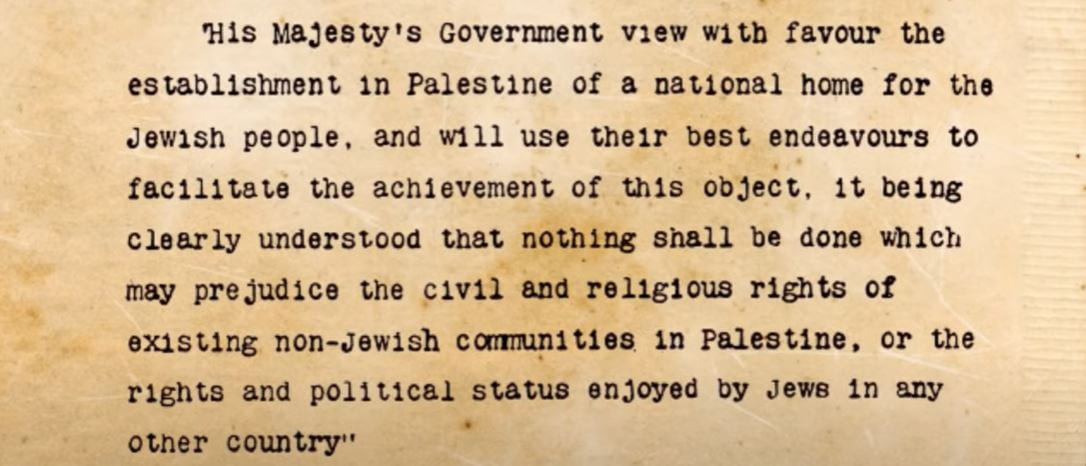Adam Schatz NLB Review on Israeli horrors.
“Out-Organise the Enemy!” Eqbal Ahmad and the liberation of Palestine
As student mobilizations in solidarity with Palestine demonstrate today, there is no need for a singular party to lead everyone. Precisely in its ideological diversity and creativity, its initiative and autonomy, and its multifarious organizational forms, the Palestine solidarity movement has succeeded—even if too briefly yet—to stop the world for Gaza. The fact that across the West, universities are doing their best to stop this movement from spreading demonstrates its actual and potential power. On April 22, when New York University colluded with the NYPD to arrest more than 100 faculty and students at the school’s Gaza solidarity encampment, they unwittingly acknowledged this fact. So too have the dozens of universities across the country deploying police forces—whose militaristic aggression seems to be ratcheting up by the hour—on campus occupations and encampments. May ’24 is brewing as May ’68 once did. If our solidarity movements are to flourish, their strategies and tactics will need to be multiple. Ayça Çubukçu in the Boston Review.
“The Destruction of Palestine Is the Destruction of the Earth,” by Andreas Malm
Visualizing PALESTINE: a data-led visual resource and educational hub for people learning and teaching about Palestine
Megan Stack NYT OpEd on the case against Israel at the ICJ. 14 Jan 2024
Alice Rothchild, Condition Critical: Life and Death in Israel/Palestine (via NYUHome/Bobst)
Alice Rothchild, “For Gaza’s Pregnant Women and Newborns, the War Will Never Be Over,” New York Times, Jan. 9, 2024
“The West, Israel and Settler Colonization of Palestine,” Lecture by Prof. Joseph Massad (12/4/23) Rutgers Center for Security, Race & Rights. Teach-in on Gaza (video) (10/16/23)
A Mass Assassination Factory: report by +972 Magazine.
The choice to engage in mass killing … an example of alternatives.
From the River to the Sea: Essays for a Free Palestine, Edited by Sai Englert, Michal Schatz and Rosie Warren, Verso 2023 (a free e-book)

Azmi Bishara, “The War on Gaza: Politics, Ethics, and International Law,”
Tuesday, 28 November 2023. Arab Center for Research and Policy Studies.
NY Times on Civilian Deaths in Gaza
US vetoes Un Security Council draft motion on ceasefire
NYU Faculty for Justice in Palestine. The Teach-in Recording.
|
Teaching & learning about Palestine/Israel 2023 Recommended anti-racist, anti-colonial feminist readings and sources This document will be expanded and updated. Please send suggestions to antiracistfeminstresources@gmail.com
|
Reuters news updates and brief history of Gaza’s centuries of war.
“Gaza Strip explained: Who controls it and what to know.”
The Hamas attack that has killed hundreds was launched from one of the most densely populated and impoverished strips of land in the world.
A good report from NBC News online [here it is in PDF]. Thanks to Yasmine Salam (more of her work posted here.)
This even a decent report from CNN: “Gaza explained: What to know about the enclave,” by Laura Paddison, CNN. Published October 15, 2023
Vox video on the Nakba, 16:25. Wikipedia: Nakba.
Grace Wermenbol, A Tale of Two Narratives: The Holocaust, the Nakba, and the Israeli-Palestinian Battle of Memories Cambridge: Cambridge University Press. 2021.
Nadera Shalhoub-Kevorkian, Security Theology, Surveillance and the Politics of Fear, Cambridge: Cambridge University Press: 05 May 2015
Sara El-Yafi analysis of the bombing of Al Ahli Hospital.
Anne de Jong, “Zionist hegemony, the settler colonial conquest of Palestine and the problem with conflict: a critical genealogy of the notion of binary conflict.” Settler Colonial Studies, 8:3, 364-383.
Why does the US finance the Israeli war machine?
See Shahid Boslan on Israel in US imperial territory. See also Ivo Daalder and James M. Lindsay, “American Empire, Not ‘If” but “What Kind,” The Brookings Institute, 2003: the US must defend its empire with its military power and its allies. Israel has been a critical ally since 14 May 1948, when “David Ben-Gurion proclaimed the establishment of the State of Israel. U.S. President Harry S. Truman recognized the new nation on the same day.”
Israel is the ally most dependent on US military aid, which benefits the the US military and its countless beneficiaries. There are major campaign funders who support US global militarism and allied Israeli militarism. All US Congressional districts have financial interests in the US military budget –here are DOD state-by-state stats — and also in the Israeli economy — see the The US Israel Embassy Website — so US funding for Israeli war in Gaza is popular in Congress. This is imperial democracy at work!
Here are some snippets from the US Embassy in Israel Website:
The U.S.-Israeli economic and commercial relationship now spans IT, bio-tech, life sciences, healthcare solutions, energy, pharmaceuticals, food and beverage, defense industries, cyber-security, and aviation, to name just a few sectors.
Critical components of leading American high-tech products are invented and designed in Israel, making these American companies more competitive and more profitable globally. Cisco, Intel, Motorola, Applied Materials, and HP are just a few examples.
Israel is home to more than 2,500 U.S. firms employing some 72,000 Israelis, according to an estimate by the U.S. Chamber of Commerce. Thousands more jobs are supported indirectly by these employers.
The Massachusetts Example: The New England-Israel Business Council released a study that shows that Israeli-founded businesses have generated about 9,000 jobs in Massachusetts alone, and indirectly support an additional 18,000. These companies represent nearly four percent of the state’s GDP. And that is just one state.
Some Historical Perspective
Gary Fields, Enclosure : Palestinian Landscapes in a Historical Mirror, University of California Press, 2017. ProQuest Ebook Central (NYU)
We tend to think of the world of nations as the natural order of things. The age of empires now seems archaic, doomed by history. But empires actually organized social space for most of human history. Inside imperial territory, people moved and settled here and there in places strung loosely together by extensive networks of imperial authority. Territories were defined more by imperial claims over taxes and strategic resources than by controls over human mobility: people, commodities and capital tended to move together, forming fluid, mobile, social spaces, but channeling wealth, power, and status structurally up the imperial ranks, creating enduring inequity at various levels of scale, including inequities inside what became national territory. Creating those national territories — which now cover the world — meant carving up imperial spaces and networks. This has been more traumatic than we typically recognize. Producing the world of nations has included horrific wars and genocide. The recent age of horror began with the First World War and has brought massive killing and displacement beyond counting. In that light, it is useful to think of Gaza and Arakan together, and also Palestinians and Rohingyas. [Here is something on Rohingyas, and more.]
Why is Israel so heavily militarized, violent, and conflicted?
The origins of Israel as a state lie in World War One and British imperial policies designed to conquer Palestine to make it British territory. World War One became the founding period for the conquest of Palestine first by the British and then by Zionists. Here is a clip from the Balfour Declaration, 2 Nov 1917. 
Post-war politics produced conflicts that by 1920 destroyed prospects of Palestinian control over Palestine, as the British mandate policies organized a binary conflict pitting Arab state against Zionist claims to Palestine. See Britannica online. This binary vision inside the British policy establishment was supported by influential Zionist leaders, who were well entrenched in among the British imperial elite, and who Anne de Jong argues “consciously advocated a framework of binary conflict in order to counter accusations of settler colonialism and garner the support of non-Zionist Jews and other potential allies.” [PDF online] As a result, following a Zionist conquest guided by planning that led to “The 1948 Ethnic Cleansing of Palestine,” the history of modern Palestine became the history of Israel. Resurrecting the history of Palestine thus became a confrontation of two opposed narratives, Zionist and Palestinian, as Ilan Pappé explains in the OUP Online Research Encyclopedia of Asian History, both organized around histories of war.
A list of Palestine Mass Murders (from Rukhsana Siddiqui)
Haifa massacre 1937
Jerusalem Massacre 1937
Ballad Al Sheikh massacre 1939
Haifa Massacre 1939
Haifa Massacre 1947
Abbasiya Massacre 1947
Al Khisas Massacre 1947
Bab al Amud Massacre 1947
Jerusalem Massacre 1947
Sheikh Bureik Massacre 1947
Jaffa Massacre 1948
Dire Yasin Massacre 1948
Tantura Massacre 1948
Khan Yunus Massacre 1956
Jerusalem Massacre 1967
Bahr Al Baqar bombing 1972
Sabra Shatila Massacre 1982
Al Aqsa Mosque Massacre 1990
Al Ibrahimi Mosque Massacre 1994
Jenine Refugee Camp 2002
Gaza Massacre 2008 to 2009
Gaza Massacre 2012
Gaza Massacre 2014
Gaza Massacre 2018-2019
Gaza Massacre 2021
Gaza Massacre started in 2023 and continues into 2024
